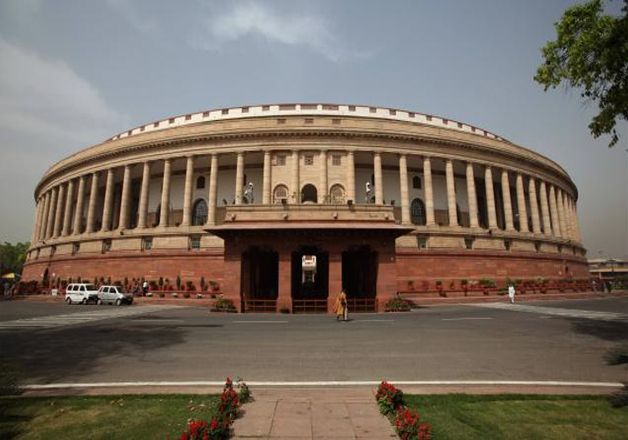This article is written by Oishika Banerji of Amity Law School, Kolkata. This article deals with the important parliamentary committees of India.
Table of Contents
Introduction
The Parliament of India comprises two houses namely the Rajya Sabha or the upper house, and the Lok Sabha or the lower house. Due to growing complexities in governing the largest democracy of the world, there arises a need for the Parliament to form committees who can look after specific matters thereby controlling ambiguity while dealing with matters that appear before it. For any committee to be called a Parliamentary Committee, it needs to fulfil certain requisites which are provided hereunder;
- The committee must be either appointed by a house of the Parliament or be nominated by the Speaker, or the Chairman.
- The committee should present a report on the completion of its purpose to either the Speaker or the Chairman.
- The committee must have a Secretariat who will be provided by either of the houses of the Parliament.
There are broadly two kinds of parliamentary committees namely the Standing Committees, and the Ad hoc Committees. The members in each committee are elected in the same way as the President of India is elected, which is proportional representation, by means of a single transferable vote. Though there are mentions of these committees in the Indian Constitution, no specific provision has been laid down to govern these committees, and therefore they are regulated solely by the rules of the two houses of Parliament. This article will provide a detailed analysis of these two committees, and their associated functions.
Importance of parliamentary committees
The various relevances of the parliamentary committees have been discussed hereunder;
- We are aware of the fact that the Parliament meets for the three sessions namely the Monsoon, Budget, and Winter Sessions in a year because we get to see the working of the Parliament by means of telecast but it is to be noted that a significant amount of work is carried out by the Parliament behind the public eye. The forums that facilitate the working of the Parliament are known as parliamentary committees. These committees have a continuous working nature because of which their capacity of dealing with several matters over the year is more in comparison to parliamentary sessions.
- Taking into account that parliamentary matters are often complex in nature, addressing them by means of technical experts stands favorable. The parliamentary committee steps in to handle these matters of complexity by providing specific assistance. It was the Committee on Health and Family Welfare that conducted a study on the Surrogacy (Regulation) Bill, 2016 that aims to put a ban on commercial surrogacy thereby allowing altruistic surrogacy only.
- The Standing Committee on Health put forth a series of recommendations on the National Medical Commission Bill in 2017, which although not binding were mostly adopted in the Bill of 2019. These recommendations are provided in the end report submitted by the Committees after completion of their assigned task.
- Parliamentary committees aim to promote open discussions among the members of a Committee in order to put forth a logical process of channelling the concerned matters. This is often absent in parliamentary sessions, as MPs are over-concerned about their party’s image, thereby restricting themselves to say what they want to.
Standing Committees
Standing committees are those committees of the Parliament that are permanent by nature with the continuous work culture. These committees are constituted in accordance with the Parliamentary Acts, Rules, Codes, and business conduct in Lok Sabha. These Committees have three categories namely the Financial Standing Committee, Department-related Committee, and Other Standing Committees, which have been discussed below.
Financial Standing Committee
The Standing Committee on Finance has been vested with the responsibility of examining matters associated with the Ministry of Finance, Ministry of Corporate Affairs, Ministry of Planning (Niti Aayog), and Ministry of Statistics and Programme Implementation. It has three different committees working under it which are; the Public Account Committee, the Estimate Committee, and the Public Undertaking Committee. This Committee was constituted under Rule 331C of the Rules of Procedure and Conduct of Business in Lok Sabha and currently consists of 31 members in total with 21 members from Lok Sabha, and 10 from Rajya Sabha, nominated by the Speaker, and the Chairman respectively.
Public Account Committee
The Public Account Committee came into being by holding the hands of the Government of India Act, 1919, and presently comprises 22 members (15 members elected by the Speaker, and 7 members elected by the Chairman) with a term of one year only. Framed with the purpose of ascertaining whether money granted to the Government by the Parliament has been spent by the former within the “scope of demand” or not, the Public Accounts Committee restricts any Minister from being elected as a member of it. The Chairman of the Committee is appointed by the Speaker of Lok Sabha. It is to be noted that the Committee, not being an executive body, can only make decisions that are advisory by nature.
Estimate Committee
By the name itself, it can be said that the Estimates Committee has been formulated to look into the efficiency of the economic administration of the country by reviewing the existing policies, and suggesting modification, alteration, or amendment in the same. A Committee comprising thirty members from the Lok Sabha lacks assistance from the Comptroller and Auditor General of India (CAG) unlike the Public Accounts Committee.
Public Undertaking Committee
The Public Undertaking Committee was constituted from the recommendations made by the Krishna Menon Committee. The Committee comprises the same strength of members as the Public Accounts Committee which is 15 members elected by the Speaker of the Lok Sabha, and 7 members elected by the Chairman of the Rajya Sabha for a term of one year. The essential functions of the Public Undertaking Committee have been shared hereunder;
- Examining reports associated, or related to public undertakings for example Damodar Valley Corporation (DVC), Life Insurance Corporation (LIC), etc.
- Examining reports submitted by the Comptroller and Auditor General of India on matters related to public undertakings.
- Ensuring the functioning of public undertakings in accordance with it, and just commercial practices.
- Any functions associated with public undertakings that are not covered by the Estimate Committee and the Public Accounts Committee will be covered by the Public Undertaking Committee.
It is noteworthy to mention that any recommendations or suggestions made by the Public Undertaking Committee by exercising its advisory nature will not be binding in nature.
Department related Parliamentary Standing Committee
Chapter XXII of the Rajya Sabha Rules contains ten provisions governing the Department Related Parliamentary Standing Committee. The third schedule of the Rajya Sabha Rules provides the list of 24 Ministries that will be covered under the ambit of this Committee, provided that the Chairman and the Speaker of Lok Sabha may subject it to alteration under the Schedule whenever necessary in consultation with each other. These are permanent committees that are reconstituted on a yearly basis, functioning with a strength of 21 members from the Lok Sabha, and 10 from the Rajya Sabha. The three majorly subjects that the Department related Standing Committee looks after are;
- Budgets;
- Bills; and
- Any subject-specific issues that need examination.
This Committee has played a significant role in acting as a check and balance for the laws that are passed by the Indian Parliament. Our law-making procedure incorporates a provision for referring Bills to this Committee before they are passed by the houses of the Parliament. This was adopted during the passing of the Consumer Protection Act, 2019 during the Budget session of Parliament. The Committee of Food and Consumer Affairs was vested with the responsibility of scrutinizing an earlier version of the Bill before it was made into an Act, who recommended amendments like increasing the deterrent for misleading advertisements and also suggested changes in definitions of certain terms in the Act, all of which was included in the Consumer Protection Act, 2019. The Committee is also responsible for budget examinations. The Demand for Grants, which is the detailed list of expenditures of the ministries, is sent for inspection and scrutinization by the Committee. Along with Bills, and budget, examination of policies framed by different ministries are also conducted by the Department related Parliamentary Standing Committee, based on the same the Committee frames the Action Taken Report which showcases the present status of the government’s actions on the recommendations provided.
Other Standing Committees
Each house of the Parliament has certain Committees that function specifically on the advice of the Speaker in the case of the Lok Sabha, and the Chairman in the case of the Rajya Sabha.
Some of the Committees of the House of People, Lok Sabha have been provided hereunder;
- Business Advisory Committee, which recommends the time for discussing matters allocated to it by the ex-officio Chairperson, the Speaker of the Lok Sabha.
- Committee on Private Members’ Bills and Resolution, formulated with the function of examining Private Members’ Bills after they are introduced, and before they are taken up for the purpose of discussion in the House.
- General Purpose Committee, working towards the affairs, and matters that are referred from time to time by the Speaker of the House.
- Rules Committee which recommends changes, and amends Rules of Procedure and Conduct of Business in Lok Sabha.
- Privileges Committee vested with the function of examining the breach of any kind of privileges available to the Members of the House.
- Committee on Papers Laid on the Table vested with the functioning of the papers falling within the ambit of the Subordinate Legislation Committee.
- Committee on Petitions
- Committee on Government Assurance vested with the function of scrutinizing the assurances and promises given by the Ministers.
- Committee on Absence of Members from Sittings of the House.
Similarly, the Rajya Sabha or the Upper House of the Parliament has a list of 12 Standing Committees namely,
- Business Advisory Committee
- Committee on Papers Laid on the Table
- Committee on Petitions
- Committee of Privileges
- Committee on Rules
- Committee on Subordinate Legislation
- Committee on Government Assurances
- General Purposes Committee
- House Committee
- Ethics Committee
- Committee on Provision of Computers for Members of Rajya Sabha
- Committee on Members of Parliament Local Area Development Scheme.
Ad hoc Committees
Committees that are appointed only on a temporary basis as they cease to exist after fulfilling the purpose behind their formation, and submitting a report of the same are known as Ad hoc Committees. For example, the Railway Convention Committee has been formed in order to review the dividend payable by Railways. There are two types of Ad hoc Committees namely Inquiry, and Advisory Committees. While the Inquiry Committee is composed from time to time by either of the houses of the Parliament to look into specific subjects, the Advisory Committee is appointed solely with the purpose of reporting on specific Bills. The 2019-20 session of the Lok Sabha has 17 Ad hoc Committees. The two principal Ad hoc Committees are Select and Joint Committees on Bill.
The “WatchDog” Committees
Till now we have broadly seen the major committees of the Parliament, and therefore it is now necessary for us to know about the “WatchDog” Committees. As the name suggests, the “WatchDog” Committees look over the functioning of the Executive organ of the Indian government. The “WatchDog” Committees include Committees on Subordinate Legislation, Committees on Public Accounts, Estimates, Government Assurance, Public Undertakings, and Departmentally Related Standing Committees. The major function of these Committees is to put a check on the government policies before they are executed, and the Executive organ at large.
Conclusion
Though there is a list of various other committees of the Parliament, this article intends to highlight and discuss the parliamentary committees broadly. It can be said that these Committees have been able to achieve efficiency in the process of discharging assigned roles by the Indian Parliament, one cannot ignore that there still exists room for improvement. Further, the rules of the two houses of the Parliament do not mandate interference of the parliamentary committees in scrutinizing the Bills passed by them which often leads to the passing of Bills without much importance given to the technical aspects of it which can be detrimental for the governance of the democracy. In order to know more about parliamentary committees, the following links must be availed:
- https://rajyasabha.nic.in/rsnew/committees/general_introduction.asp.
- http://164.100.47.194/Loksabha/Committee/CommitteeHome.aspx.
References
- https://prsindia.org/theprsblog/importance-parliamentary-committees.
- http://164.100.47.194/our%20parliament/Parliamentary%20Committees.pdf.
- https://www.iasabhiyan.com/parliamentary-committees/.
- http://164.100.47.194/Loksabha/Committee/CommitteeHome.aspx
LawSikho has created a telegram group for exchanging legal knowledge, referrals, and various opportunities. You can click on this link and join:
https://t.me/joinchat/J_0YrBa4IBSHdpuTfQO_sA
Follow us on Instagram and subscribe to our YouTube channel for more amazing legal content.
 Serato DJ Crack 2025Serato DJ PRO Crack
Serato DJ Crack 2025Serato DJ PRO Crack











 Allow notifications
Allow notifications


